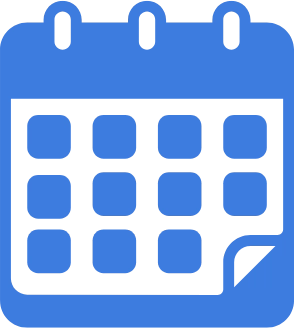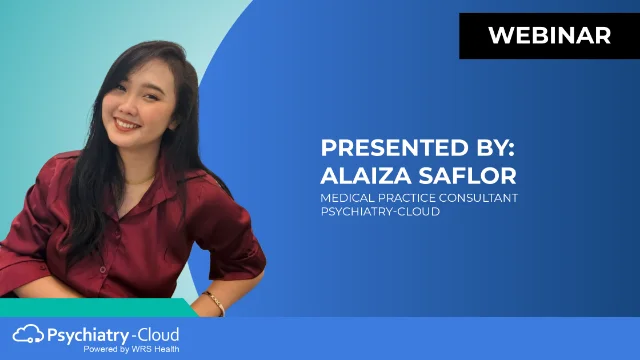Key Takeaways
- Simple, direct insights into psychiatry EHR ease of use and workflow fit
- A clear visual comparison showing how Psychiatry-Cloud stacks up
- Key considerations to guide your behavioral health EMR selection
- Find out how to get time back and revenue up in this Psychiatry-Cloud guide to AI
Are you one of many psychiatrists feeling drained from being “on” for patient care while also carrying the weight of practice management and nonstop administrative tasks? Late-night notes, billing worries, and endless paperwork pile up, leaving you overworked and wishing for more time to focus on your patients.
A recent American Psychiatric Association assessment shows nearly 2 out of 5 psychiatrists face professional burnout, and 54% of all clinicians report at least one of the classic symptoms—emotional exhaustion, cynicism, or reduced professional effectiveness.
The right technology can make a real difference, and it may be time to ask whether your systems are truly supporting you. With so many psychiatry EHR options, the search can feel overwhelming. The best tools are those that lighten your workload, speed up charting, keep documentation accurate, and minimize tech friction. This blog offers a clear side-by-side comparison, straightforward evaluation criteria, and practical insight into why more practices are choosing Psychiatry-Cloud.
Table of Contents
What Makes an EMR the “Best” for Psychiatry?
With modern technology, AI is everywhere, but that doesn’t mean most systems understand how psychiatrists actually work. The best EMRs are shaped by the realities of clinical practice—where time is scarce, documentation is heavy, and accuracy is essential. Defining “best” isn’t about flashy add-ons; it’s about meaningful features that truly support care delivery and lighten the daily load.
Psychiatry-First Clinical Workflows
Psychiatrists need tools built around their specialty, not generic templates. Features like structured HPI/ROS intake, medication reconciliation, and diagnosis-specific guidance keep encounters smooth and clinically relevant.
AI That Actually Reduces Clicks
Ambient scribing, smart summaries, and in-note AI assistance cut documentation time while improving accuracy. Instead of adding steps, AI works quietly in the background to keep you focused on patients.
Revenue Protection You Feel
Smart E/M coding recommendations and real-time eligibility checks help safeguard revenue. By reducing denials and audit risk, the system protects both your practice’s bottom line and your peace of mind.
Intake-to-Follow-Up Automation
From self-scheduling to self-registration, automation streamlines the patient journey. Even routing new versus established patients is handled automatically and uniquely, saving time and reducing bottlenecks.
Interoperability Clarity
CCDA Insights and external CCDA summaries surface the data that matters most exactly when you need it. Instead of sifting through pages of disjointed information, providers get a clear, concise view of the essentials.
Mobile Depth for On-Call Care
With WRS MobileMD, providers can access eRx, labs, notes, and even AI Scribe from anywhere, whenever they need it. This flexibility supports after-hours prescribing, urgent results review, and continuity of care on the go.
Quick Comparison Table – Psychiatry-Cloud vs. Competitors
Deep Dive: Psychiatry-Cloud Capabilities That Change the Workday
AI Scribe
An ambient scribe listens during visits and generates structured summaries. Providers save hours weekly, cutting note-writing time by as much as 30%.
CCDA Insights
Clinical Practice Guidelines In-Note
E/M Coding Recommendations
Pre-Encounter Interview Chatbots
Smart prompts suggest the right code level as documentation is created. That means more accurate billing, fewer denials, and reduced audit exposure.
Follow-Up Agents
Follow-up agents distill key findings from prior notes, labs, and reports. Providers enter each encounter with concise, actionable context in hand.
Scheduling & Registration Agents
Patients self-schedule, register, and verify insurance, saving time during every appointment. Plus, the workload is reduced at the front desk.
WRS MobileMD
WRS MobileMD extends access to charts, e-prescriptions, labs, and documentation. Providers can complete tasks quickly from anywhere—even after hours.
AI Agents Management in WRS Admin
Administrators can enable or disable AI features from a single dashboard. This speeds up onboarding and ensures practices maintain control.
Head-to-Head Comparisons
Psychiatry-Cloud vs Valant
Valant is built for behavioral health, but its AI depth is still developing. Psychiatry-Cloud layers in ambient scribe, CCDA Insights, and real-time guideline prompts alongside eligibility and E/M automation for a more comprehensive workflow.
Psychiatry-Cloud vs AdvancedMD (Behavioral Health)
AdvancedMD is known for strong revenue cycle tools, but lacks intelligent agents to close gaps in billing and coding. Psychiatry-Cloud brings behavioral health-focused automation—intake chatbots, follow-up summaries, and WRS MobileMD access—that reduces daily administrative weight while managing the revenue stream.
Psychiatry-Cloud vs TherapyNotes
TherapyNotes is simple and easy to learn, but limited in automation. Psychiatry-Cloud adds AI Scribe, structured HPI/ROS intake, and CCDA clarity to scale efficiency across larger or busier practices. With its intuitive design, complex features are still easy to navigate.
Psychiatry-Cloud vs Athenahealth
Athenahealth offers a broad network and enterprise resources, but falls short when it comes to specialty-specific features. Psychiatry-Cloud narrows the focus with psychiatry-specific AI, front-desk automation, and guideline support designed to lighten provider workload.
Psychiatry-Cloud vs Epic/Cerner
Epic and Cerner bring enterprise-level scope but require heavy resources and overhead. Psychiatry-Cloud delivers faster deployment, lower costs, and focused AI summaries that fit outpatient psychiatry. Plus, with a personalized service team, you’ll feel supported even after implementation.
Psychiatry-Cloud vs SimplePractice / Tebra / DrChrono / CharmHealth
These platforms win on affordability and accessibility, but limit users to rigid workflows and stripped-down interfaces.. Psychiatry-Cloud advances beyond that with deeper AI, interoperability insights, revenue protection, and mobile features that better sustain complex psychiatric practices.
Real-World Impact by Practice Type
Solo Psychiatrists and Small Groups
For solo providers and small practices, every hour counts. Automating intake, reducing note time, and enabling mobile prescribing after-hours means fewer late nights spent on charts and more flexibility to focus on patients—or simply recover personal time.
Mid-Size Group Practices
In group settings, efficiency gaps multiply quickly. Standardized intake processes, AI-supported documentation, and built-in coding recommendations help boost provider throughput while keeping records consistent and audit-ready across the team.
Community Clinics/Multi-Location
Larger clinics and multi-site organizations benefit from scalable automation that eases front desk workload and supports staff across locations. Real-time guideline prompts and structured follow-up tools ensure care delivery remains consistent and evidence-based, no matter how many providers are on the roster.
Evaluation Checklist: How to Choose the Best Psychiatry EMR
Documentation Speed
Look for accurate ambient scribe, summaries, and in-note AI that shorten charting time.
Intake Automation and Patient Self-Service
Ensure patients can self-schedule, register, and complete intake forms in advance.
Revenue Safeguards
Eligibility checks and E/M coding support protect billing accuracy and reduce denials.
Interoperability Clarity
Prioritize tools that surface key insights from CCDAs instead of providing masses of unfiltered data.
Mobile Capabilities
Confirm mobile access for telepsych, e-prescribing, lab review, and notes when away from the office.
AI Governance and Easy Rollout
Systems should allow admins to toggle features on and off for smooth adoption.
Proven Time Savings and Measurable Metrics
Seek out platforms that show documented time savings and clear performance metrics.
Bottom Line: Care More, Click Less
The daily reality of psychiatry doesn’t have to mean late-night documentation, stressed-out staff, or constant revenue worries. With the right EMR, the burden of paperwork, scheduling, and coding becomes lighter, giving you back the time and clarity. When running a psychiatry practice feels manageable, teams thrive, patient outcomes improve, and real growth becomes possible.
A calmer front desk, steadier revenue, and fewer after-hours notes are the foundation of a sustainable practice, not merely conveniences. Choosing the best psychiatry EMR makes stronger patient connections possible while giving you peace of mind that the business details are handled in the background. With Psychiatry-Cloud, you can care more and click less.











